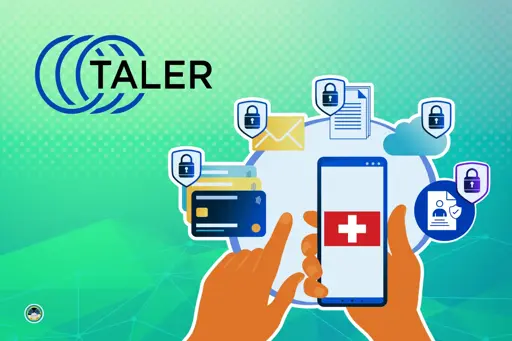GNU Taler begins operating in Switzerland, distributed by the Taler Operations AG. Gnu Taler aims to be a “digital wallet” and has been used by the swiss national bank as well as the european national bank as a example for how a digital currency handed out by the state could work. It aims to be as privacy preserving as cash for the buyer while not allowing the seller to evade taxes.
Currently the Taler is brought out by a special organisation, the “Taler Operations AG”, and not the national bank, although both the national bank as well as the Taler Team have shown interest in a official digial currency by the national bank based on the Taler. But we need to relativate as the national council has stated that the introduction of a digital currency would probably take relatively major legislative changes and therefore take a bit of time.



Very interesting thanks for the explanation.
I think that makes some sense to me. I’m moderately familiar with signatures and encryption. I’m going to do some more research into blind signatures now since that’s one thing I have never had to implement.
Without doing that research, I still feel that the bank or whatever could store the signature info at the time of signing with the account that requested it, but perhaps the blind signing even protects against that if the verification process is done in some way that the original signing request info isn’t present in the same form.
Anyway, thanks for the response!
ETA:
Oh the other hole in the ATMs I was talking about assuming a malicious ATM. Since the coin can only be verified by depositing it, (without doing more research on this) I still don’t see a way to verify that the ATM actually gave you a valid signature. Maybe it’s possible to validate the signature before unwrapping the coin, then impossible to validate the unwrapped coin that is given to the merchant. I could see that.
Also presumably these could be bank ATMs and not sketchy Bitcoin ATMs so maybe the malicious case isn’t as much to worry about.